Mining sector leaders met with sustainability experts and civil society organizations to discuss solutions that reconcile economic development, a reduction in inequalities and the protection of forests and social and biological diversity
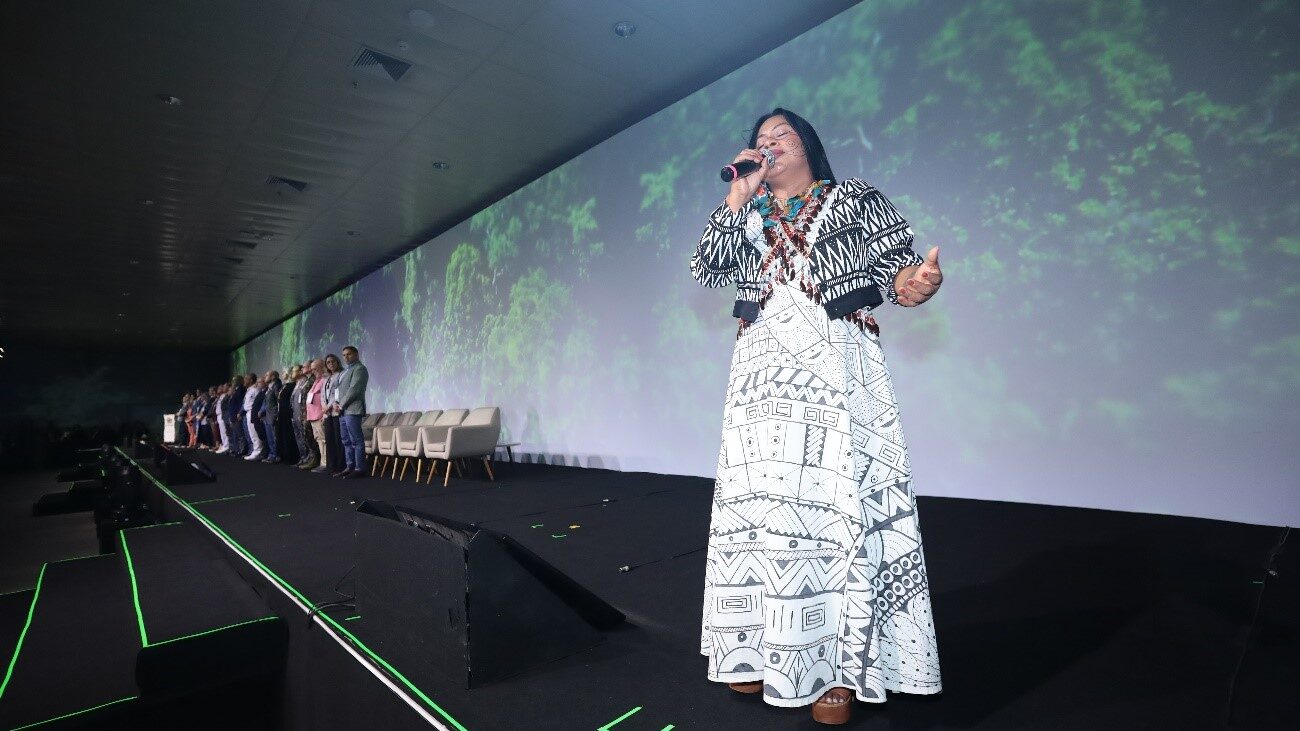
Held by the Brazilian Mining Institute (IBRAM), in partnership with the state government of Pará and sponsored by Vale, the International Amazon and New Economies Conference brought together around 2,800 participants from 11 countries between November 6 and 8 in Belém, Pará. The event featured two international speakers: John Kerry (online), a former U.S. secretary of state; and Ellen Johnson-Sirleaf, a former president of Liberia (the first woman to hold this position in Africa) and Nobel Peace Prize winner. In all, there were more than 50 hours of content, 25 presentation and debate sessions, and 170 speakers, including Hugo Barreto, the president of Fundo Vale; Patrícia Daros, Fundo Vale’s executive director; and Márcia Soares, Fundo Vale’s Amazon and partnerships manager.
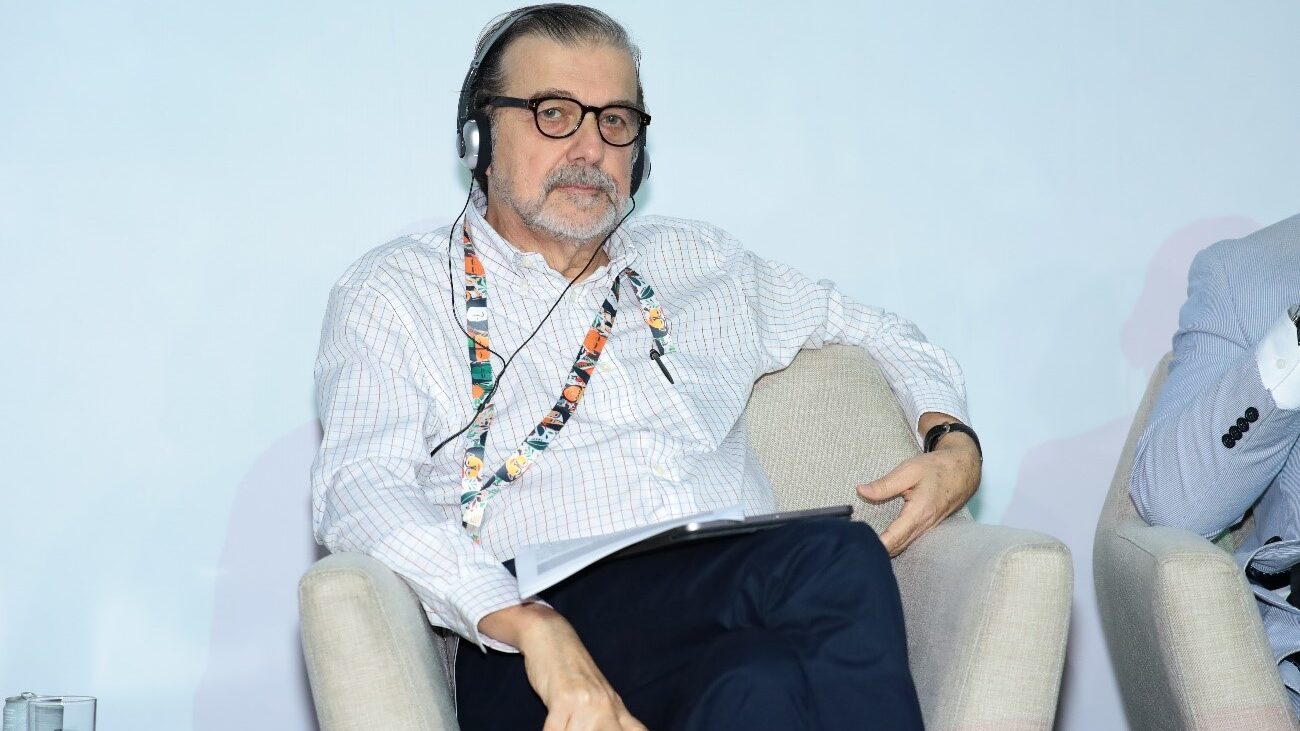
A panel called “COP30 – What’s next?” brought together leaders and experts to anticipate strategic issues for the conference to be held in 2025 in Belém, Pará. Hugo Barreto, the president of Fundo Vale, took part in the debate, alongside Marina Grossi of the Brazilian Business Council for Sustainable Development, federal attorney Mauro O’ de Almeida and Thelma Krug, a former employee of the National Institute for Space Research and Environment Ministry. Topics such as technology transfer, climate justice and the ecological transition were discussed, moderated by Professor Paulo Artaxo of the University of São Paulo. The participants reflected on the expected legacy of COP30 and Brazil’s path to achieving its emission reduction targets and fulfilling its commitments under the Paris Agreement.
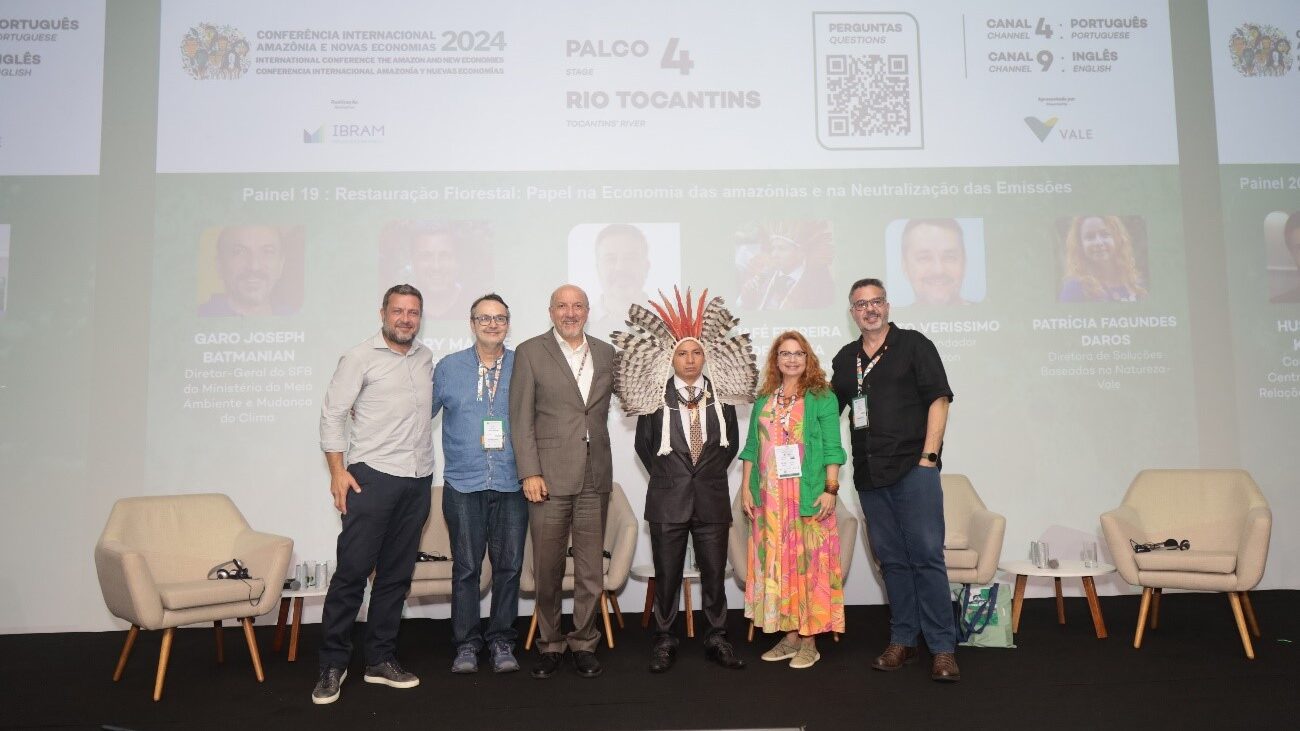
Fundo Vale’s executive director, Patrícia Daros, took part in a debate called “Forest Restoration’s Role in the Amazon Economy and in Neutralizing Emissions.” The other speakers were Beto Verissimo of Imazon, Gregory Maitre of MORFO, Jafé Ferreira de Souza of KAPI Association and Luis Piva of the Sustainable Amazon Foundation. The moderator was Garo Joseph Batmanian, general director of the Environment Ministry’s Forest Service.
The subjects discussed included job creation through the restoration of degraded areas and the strengthening of a sustainable forestry base, capable of promoting a bioeconomy that harnesses natural resources. The panel also highlighted the regeneration of ecosystems as an essential way to achieve biodiversity conservation goals and create income-generating opportunities linked to the carbon market. The speakers also emphasized the importance of actions to encourage investment and technological innovation, which are fundamental to tackling environmental challenges.
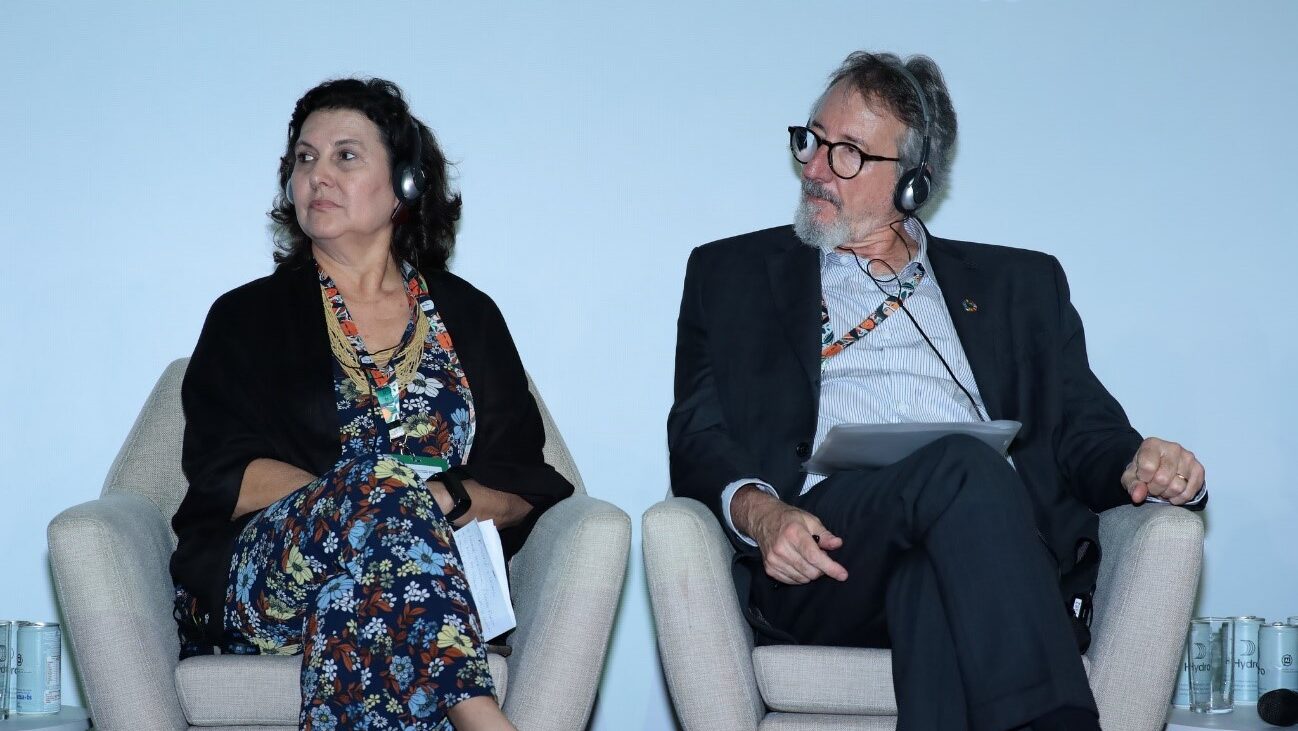
Márcia Soares, Fundo Vale’s Amazon and partnerships manager, took part in a panel called “The New Mining in a Systemic Development Agenda for the Amazon,” alongside Anderson Martins of Hydro Mineração, Caio Luiz Carneiro Magri of the Ethos Institute, Guido Roberto Campos Germani of Mineração Rio do Norte and Neliton Marques da Silva of Amazonas Federal University. The moderator was Bruno Gomes of HUMANA. “This discussion was valuable as it showed how the sector can support new economic models in the Amazon that protect and restore the environment, strengthen local cultures and harness natural assets and the wisdom of traditional peoples,” said Soares.
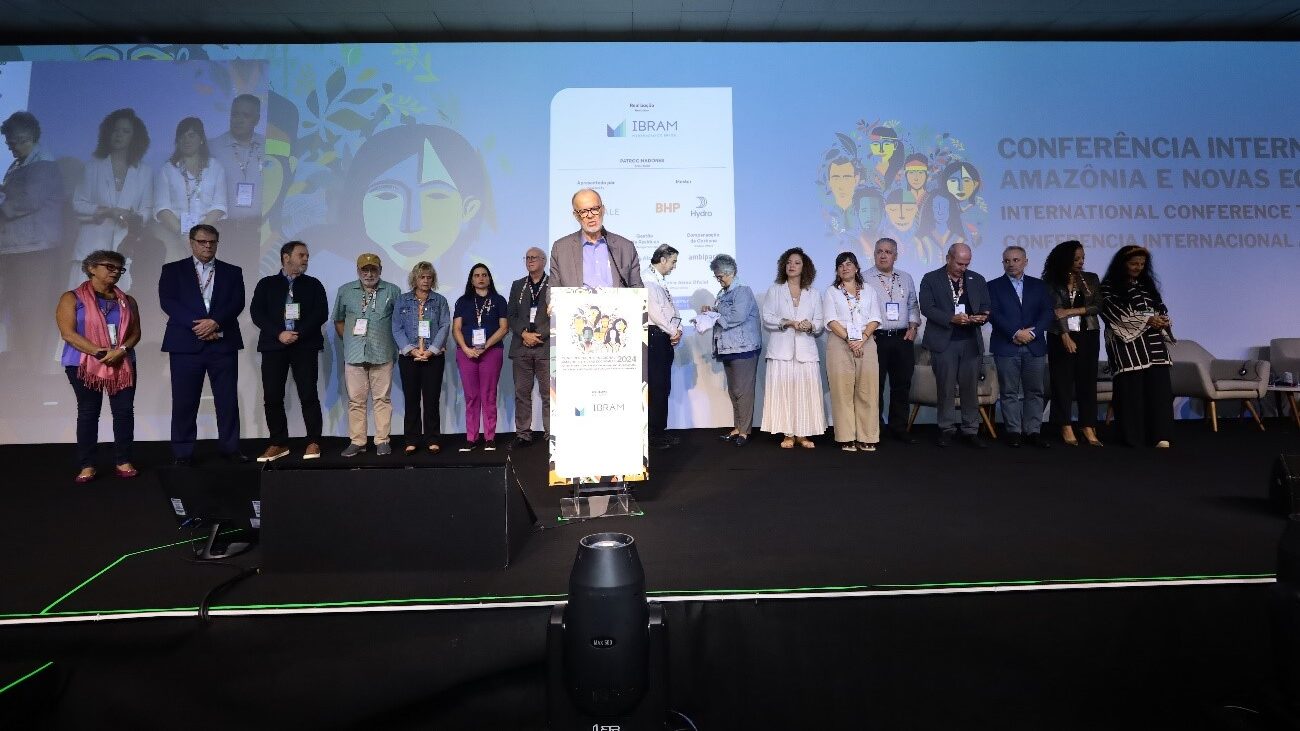
During the conference’s closing session, Hugo Barreto spoke on behalf of the sponsors. According to him, this event will help the participants arrive at COP30 with clear commitments from the mining sector for a more sustainable world, covering aspects such as decarbonization, combating inequalities and forest protection, among other issues. “We want to be together to discuss solutions for a better world,” he said.
The diversity of the conference goers, who shared their opinions and proposals aimed at the Amazon’s sustainable development, was the highlight of the event, according to Raul Jungmann, the president of IBRAM. “The dialogue we have had in the last few days will have a powerful legacy as we work to address our challenges and shape the future of the Amazon,” he said.
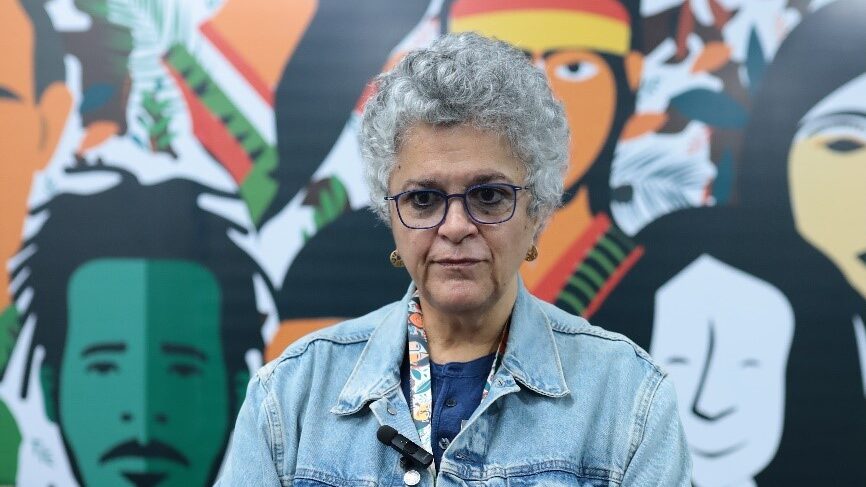
The conference’s curator was Izabella Teixeira, a former Brazilian environment minister and now a member of the UN Economic and Social Council. She spoke about the next steps following the conference, with an eye on the COP30 agenda. “The idea now is that a variety of Amazon stakeholders will leave here to talk to a variety of Brazilian stakeholders. COP30 has in fact already begun, in the context of expectations that the world’s solutions to climate issues will also involve Brazil and the Amazon. The region’s biodiversity needs to be examined. It is very fragmented and it needs to be reorganized around this agenda, around this strategic discussion of Brazil as a modern country,” she said.
